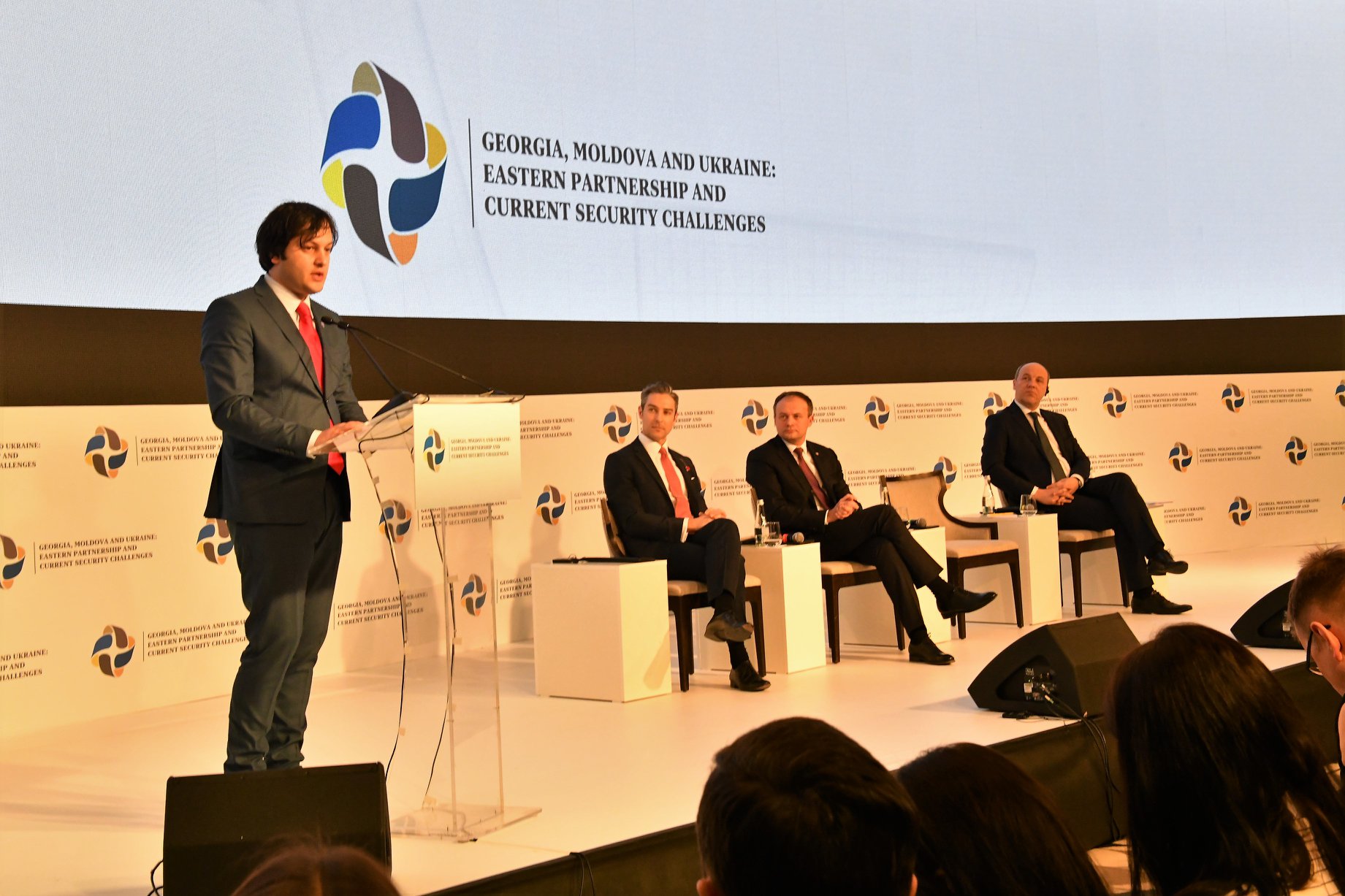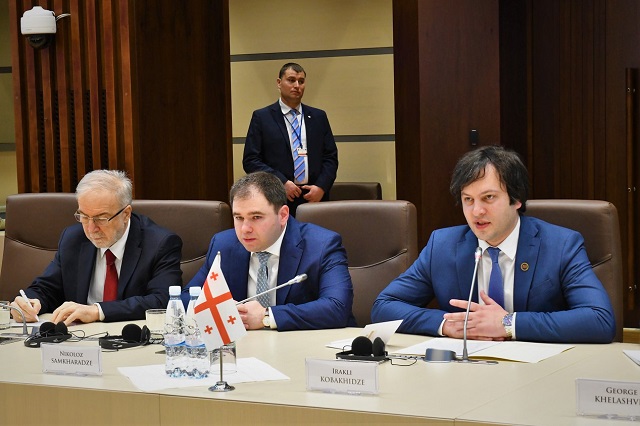Parliament Speaker: Russia’s consent to violations causes death of Georgians in occupied regions

The Georgian Parliament Speaker Irakli Kobakhidze has stated at an international conference in Moldova that Russia’s open or silent consent to violation of human rights leads to deaths of Georgian citizens in the occupied regions of Abkhazia and Tskhinvali (South Ossetia) of Georgia.
Such an attitude from Russia caused the death of Archil Tatunashvili in Tskhinvali,” Kobakhidze stated today at the international conference Georgia, Moldova and Ukraine: Eastern Partnership and Current Security Challenges held in the capital of Moldova, Chisinau.
I appeal to all sides to remove the barriers hindering transparent investigation of the crimes committed against peaceful citizens of Georgia,” Kobakhidze added.

Kobakhidze pushed forward the issue of Georgia's occupied regions during his meeting in Parliament of Moldova. Photo from the parliament of Georgia press office.
The parliament speaker underscored that Tatunashvili’s death "in unclear circumstances” remained unpunished, which encouraged worsened human rights conditions in the breakaway regions.
Kobakhidze dedicated the biggest portion of his speech to hard human rights situation in the occupied regions.
The Government of Georgia is concerned not only by the issues of sovereignty and territorial integrity, but also by the hard humanitarian and human rights situation in the regions. Children are deprived of the right to receive education in the mother tongue in the regions and locals cannot move freely,” Kobakhidze said.
The parliament speaker highlighted that despite Russia’s destructive actions the government of Georgia has done its utmost to settle conflicts in a peaceful manner.
The Russian occupation and dictatorship has always been temporal in Georgia. Georgia intends to gain victory in the fight against Russia through peaceful, but firm resistance,” Kobakhidze stated.
He said that Georgia’s economic and political development, as well as high security should persuade the Georgian citizens living in the occupied regions that Georgia is the "only legitimate state”, where they can live, develop and achieve welfare.
 Tweet
Tweet  Share
Share